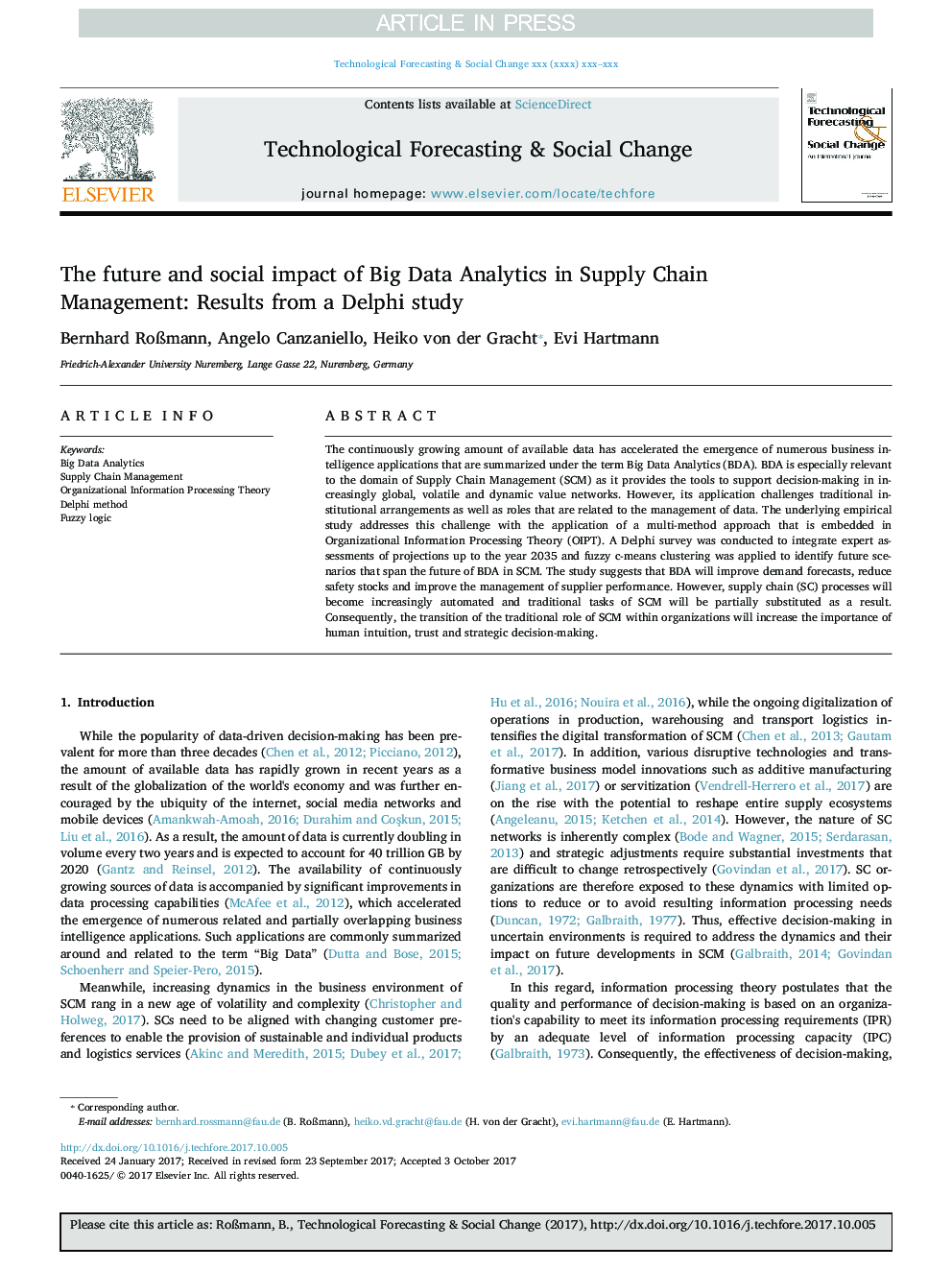| Article ID | Journal | Published Year | Pages | File Type |
|---|---|---|---|---|
| 7255484 | Technological Forecasting and Social Change | 2018 | 15 Pages |
Abstract
The continuously growing amount of available data has accelerated the emergence of numerous business intelligence applications that are summarized under the term Big Data Analytics (BDA). BDA is especially relevant to the domain of Supply Chain Management (SCM) as it provides the tools to support decision-making in increasingly global, volatile and dynamic value networks. However, its application challenges traditional institutional arrangements as well as roles that are related to the management of data. The underlying empirical study addresses this challenge with the application of a multi-method approach that is embedded in Organizational Information Processing Theory (OIPT). A Delphi survey was conducted to integrate expert assessments of projections up to the year 2035 and fuzzy c-means clustering was applied to identify future scenarios that span the future of BDA in SCM. The study suggests that BDA will improve demand forecasts, reduce safety stocks and improve the management of supplier performance. However, supply chain (SC) processes will become increasingly automated and traditional tasks of SCM will be partially substituted as a result. Consequently, the transition of the traditional role of SCM within organizations will increase the importance of human intuition, trust and strategic decision-making.
Related Topics
Social Sciences and Humanities
Business, Management and Accounting
Business and International Management
Authors
Bernhard RoÃmann, Angelo Canzaniello, Heiko von der Gracht, Evi Hartmann,
